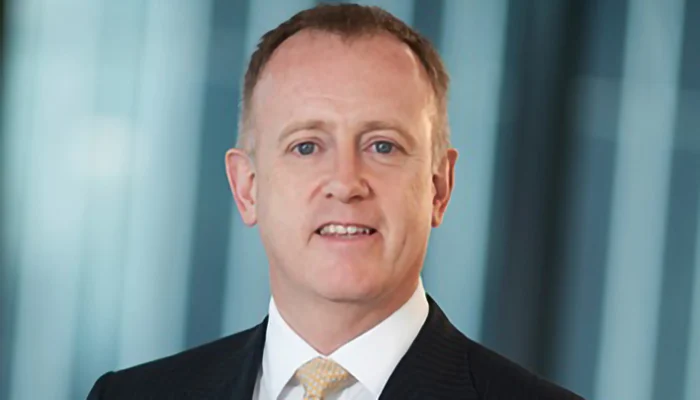John Neal,Chief Executive Officer,Lloyd’s of London
Rising inflation, recession worries, climate threats and geopolitical tensions are making individuals and businesses more wary of risks, according to the head of the insurance exchange. While in a normal year insurance grows at the same rate as gross domestic product, it is now growing three times faster, Neal said in an interview with Bloomberg News
London:
Growing fears about the state of the world are pushing more people to take out insurance even as prices rise, Lloyd’s of London Chief Executive Officer John Neal said.
Rising inflation, recession worries, climate threats and geopolitical tensions are making individuals and businesses more wary of risks, according to the head of the insurance exchange. While in a normal year insurance grows at the same rate as gross domestic product, it is now growing three times faster, Neal said in an interview with Bloomberg News.
“We’re in an unusual period of time where insurance is growing very fast,” he said.
Lloyd’s reported a pretax profit of £3.9 billion ($4.9 billion) for the first six months of the year, compared to a loss of £1.8 billion a year ago, when the outbreak of war in Ukraine and worries over the direction of inflation sent shockwaves through global markets.
For the six-month period, Lloyd’s returned £1.8 billion on its investments, compared to a loss of £3.1 billion a year ago, while its underwriting profit more than doubled to £2.5 billion as losses from major claims fell. Meanwhile, the group wrote £29.3 billion of premiums, a jump from £24 billion in the same period a year ago.
“We are reporting profitability that hasn’t been seen in a couple of decades,” Neal added.
According to Neal, insurance prices generally have risen about 9% over the past year.
A landmark agreement around jets stranded in Russia is positive for insurers, Neal said.
Aercap , the world’s largest aircraft lessor, this week agreed to settle an insurance claim over Russia’s refusal to return 17 jets leased to airline Aeroflot, in a dispute over 400 Western planes stranded in the wake of the Ukraine invasion.
The deal, an apparent compromise in an economic war between Moscow and the West, looks set to lower a bill facing insurers, who are locked in court cases over who should pay for the loss of up to $10 billion.
Neal told Reuters that the Aercap settlement was “good news for us too, it means we can sit down and start to have the conversation about what is the claim”.
Beazley CEO Adrian Cox told Reuters on Thursday that the Lloyd’s insurer’s exposure to the stranded jets was small, but added:”We have been hearing more noises about settlements being negotiated, it wouldn’t be surprising to us if we saw some settlements happen before the trials started.”
Neal said 32% of leaders in the market were women, adding that syndicates which did not meet end-2023 diversity targets could face bans.
Lloyd’s has a target of 35% of leaders to be women by the end of the year, as it focuses on diversity after complaints in recent years about sexual harassment and daytime drinking in the commercial insurance market, which employs nearly 50,000 people.
“If you do not meet the expectations we have … around diversity, equity and inclusion, then you can’t trade in the market,” Neal said.
Lloyd’s of London typically sells insurance for large events such as shipwrecks and natural disasters, with the risks shared by its syndicates.
Agencies

